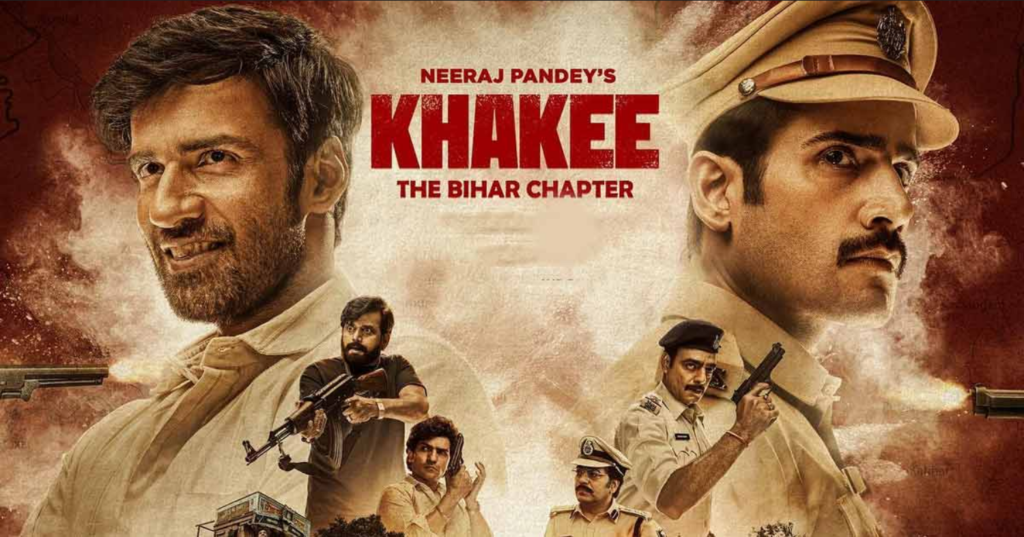
Khakee: The Bihar Chapter’s major shortcoming lies in its lack of interest in delving deeper into its narrative. It resembles a superficial wound in the realm of police dramas. However, this apparent flaw may also serve as its greatest strength, offering a forgiving quality. Set in the tumultuous landscapes of Bihar in the mid-2000s, Khakee surprisingly captivates as masala entertainment, unapologetically embracing its unrefined storytelling and skimming over moral complexities.
Crafted by Neeraj Pandey and directed by Bhav Dhulia, Netflix’s seven-episode crime drama seems content merely to exist, akin to a new police recruit thrilled with the uniform, paying little attention to its fit. Karan Tacker portrays the inexperienced cop Amit Lodha, a highly qualified individual stationed in an unfamiliar and lawless territory, akin to Ayushmann Khurrana’s role in Article 15. Motivated by duty, Amit is portrayed as comically upright, almost saintly.

As the seasons progress, Amit ascends the ranks alongside Chandan Mahto, a lowly goon played by Avinash Tiwary, whose transformative performance overshadows any concerns about brownface makeup. The narrative unfolds with forgotten women, slain bodies, and an abundance of masculine energy, propelling Amit and Chandan toward an action-packed collision.
Tacker, having previously collaborated with Pandey on the spy series Special OPS, does his best with the underdeveloped character of Amit. Idealistic and little else, Amit navigates through accolades, temporary setbacks, and the potential role of a fall guy in the force’s pursuit of Chandan Mahto. The show sporadically injects domestic scenes featuring Amit, given less consideration than privacy in a men’s urinal.

The story is narrated by Abhimanyu Singh’s sweaty station house officer, who eventually teams up with Amit to form a rogue squad chasing the elusive Chandan. Despite the involvement of seasoned actors like Ashutosh Rana, Anup Soni, and Ravi Kishan, and Vinay Pathak’s bent politician, the show struggles to do justice to its myriad plotlines.
Khakee juggles multiple storylines, yet fails to give proper attention to any of its parallel plots or characters. While this approach might typically hinder a story, Khakee’s breakneck pace contributes to its appeal. The show’s engaging sequences, such as a prison breakout orchestrated by Chandan Mahto, possess a rough quality but are imbued with a sense of forward momentum.

Despite brief attempts to draw parallels between Amit and Chandan, the series falls short of providing psychological insights into the minds of determined cops and criminals. While themes of systemic corruption and encounter killings are hinted at, Khakee opts for a B-grade potboiler approach, which can be seen as a compliment rather than a criticism. Neeraj Pandey’s mastery of squad-style procedurals is evident, appealing to fans of his storytelling style, even as others may be put off by its simplicity.



